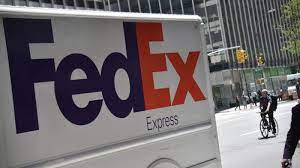The Indian antitrust authorities are looking into claims of coordination on discounts and tariffs by domestic subsidiaries of international delivery corporations, including FedEx, United Parcel Service, and DHL of Germany.
In 2015, France fined 20 corporations, including FedEx and DHL, a total of $735 million for covertly conspiring to raise prices. This is the most recent round of scrutiny directed towards the logistics sector.
Government records indicate that the Competition Commission of India (CCI) has started going through hundreds of thousands of emails to look into the prices that companies charge for airport services.
Its investigation started in October 2022 in response to a complaint by the Federation of Indian Publishers, which stated that several domestic companies—DHL, FedEx, UPS, and Dubai’s Aramex were determining prices jointly and limiting discounts for customers.
If proven, such acts are against Indian antitrust laws.
Before settling on prices, the publisher said that corporate executives discussed commercially sensitive information about volumes, costs, and discounts on courier and storage services provided at airports.
In an initial evaluation that prompted the wider investigation, the CCI stated that they “seem to be sharing commercially sensitive information amongst themselves for taking joint or collective decisions to arrive at tariffs.”
FedEx vehemently refuted the allegations in the complaint in a statement, although it assured reporters that it was committed to following the law and that it was working with the CCI. Additionally, DHL stated that it was completely cooperating and has always complied with the law.
UPS stated that the company was working with the watchdog but could not comment on “an ongoing, non-public investigation” in detail.
Details of antitrust investigations, including allegations of pricing collusion and cartel activity are kept private by the watchdog.
If cartelization is found to have occurred, there might be a fine of up to three times the profit in each year the companies set the charge, or 10% of the annual revenue for each year the violation occurred, whichever is higher.
The boom in e-commerce increases demand
Many businesses are optimistic about the future of the courier, express, and parcel delivery services sector, which is predicted by research firm Mordor Intelligence to expand at a rate of 17% annually to reach $18.3 billion by 2029 as demand is driven by the rise in e-commerce.
DHL declared that it would make a $547 million investment in 2022 to increase its staff and warehouses in India, designating the country as a priority market. A FedEx division paid $100 million last month to establish a Centre for Technology and Digital Innovation.
The papers revealed that the majority of the companies under investigation sent emails to the watchdog in response to alerts issued after it identified key individuals thought to be involved in the alleged misbehavior.
The goal of the extension was to give the investigators till March to review all of the information and draft an internal report.
The records from the watchdog’s 2022 study revealed that airport service rates set by courier businesses were settled upon in meetings, before being deemed “mandatory” for all parties involved in an agreement.
Additionally, the complainant group claimed that certain corporations implemented gasoline surcharges ranging from 17% to 22% due to rising fuel prices, but they did not lower them later on when those prices decreased, amid the travel bans associated with the COVID-19 epidemic.
In one document, the CCI stated, “Such conduct appears to emanate out of coordination or collusion.”

















